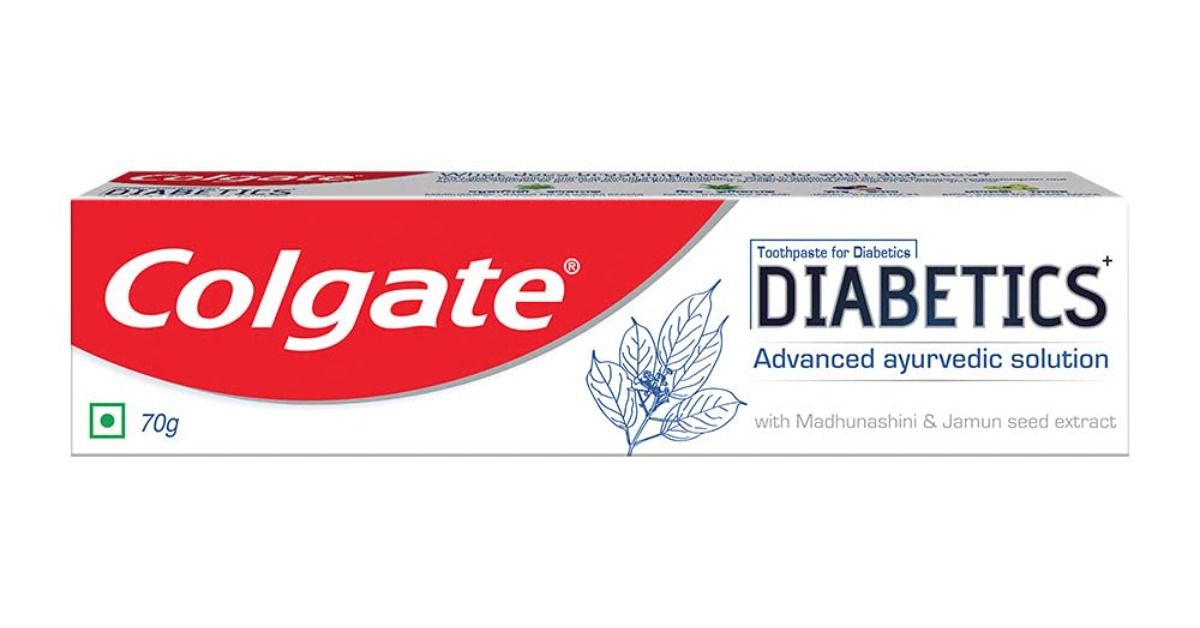Diabetes Management
Significance of Oral Care for People with Diabetes
6 min read
By Apollo 24/7, Published on - 15 September 2021, Updated on - 11 December 2023
Share this article
3
0 like

Most people with diabetes are well aware of the fact that the disease affects the eyes, nerves, kidneys, heart, and other vital organs of the body. However, not many of them know that diabetes can also adversely impact oral health. In fact, people with diabetes are more likely to have oral problems than others.
The risk of oral problems is especially high for diabetics who have poor control over their blood sugar levels. If you are planning to know your blood sugar levels, click here to book your blood glucose test.
Interestingly, having oral problems can also increase the risk of diabetes. The article below explores this unique relationship between diabetes and oral health in detail.
How does diabetes affect oral health?
People with diabetes have higher than normal blood sugar levels. Having too high blood sugar levels is a known risk factor for various oral problems. Moreover, besides blood, sugar is also present in the saliva - the liquid in the oral cavity that keeps the mouth wet. High levels of sugar in saliva facilitate the growth of harmful bacteria in the mouth. These bacteria interact with starches and sugars present in food and beverages to create plaque (a soft, sticky film) on the teeth. The acids in plaque erode the surfaces of teeth (enamel and dentin). Over time, this results in cavities and gum disease.
According to dentists and diabetologists, diabetes and gum disease form a part of a vicious cycle. People who have diabetes are more prone to gum disease due to high levels of sugar in blood and saliva, increased risk of bacterial infection, and delayed healing. Elevated blood glucose levels also weaken the white blood cells which play a key role in fighting bacterial infections. On the other hand, as with all infections, serious gum disease may cause blood sugar levels to rise which makes it harder to manage diabetes.
3 major oral problems associated with diabetes
Having diabetes increases the risk of oral problems such as cavities and gum disease (gingivitis and periodontitis). According to research published in the Journal of Indian Society of Periodontology, the incidence of gum disease in diabetic patients in India is estimated to be 86.8%.
Cavities
Cavities, also known as tooth decay or caries, are one of the most common oral problems that particularly affect children, adolescents, and the elderly. It is characterized by permanent damage to the hard surface of the teeth. The condition is caused by a combination of factors, such as intake of sugary and starchy foods, not cleaning teeth regularly, and growth of oral bacteria and dental plaque.
Since bacteria sustain on sugar, people with diabetes are at a higher risk of developing cavities due to high levels of sugar in their blood and saliva. The risk is especially high for those who consume large amounts of foods rich in sugar and refined carbs.
Gingivitis
This is also known as early-stage gum disease. In gingivitis, the dental plaque accumulates and hardens under the gumline to form a substance called tartar (dental calculus). Tartar collects bacteria and creates a protective shield around it. Over time, tartar causes inflammation in the gingiva, a part of the gums around the base of the teeth. The inflammation causes the gums to become swollen and bleed easily.
People with diabetes are at a greater risk of gingivitis. In India, gingivitis is believed to affect 27.3% of people living with diabetes. Uncontrolled blood glucose levels in diabetes mean more sugar in saliva. High levels of sugar in saliva foster the growth of harmful bacteria and the build-up of tartar under the gums. All these factors combine to increase the risk of gingivitis.
Periodontitis
Unless treated on time, gingivitis can progress to a more serious type of gum disease called periodontitis. The condition causes pockets to develop between the gums and teeth. These pockets facilitate the accumulation of plaque, tartar, and bacteria. With time, these pockets become deeper. Without treatment, periodontitis can lead to the loss of one or more teeth.
Periodontitis is usually more severe among people with diabetes. This is because diabetes adversely affects the ability to fight infections and delays healing. Similarly, periodontitis can aggravate blood sugar levels, which in turn may worsen diabetes. According to a study, periodontitis affects 59.5% of diabetics in India.
Also Read: Link Between Diabetes & Heart Disease
Symptoms of gum disease in diabetics
For people with diabetes, it is crucial to recognize the symptoms of gum disease early on to avoid severe complications. Therefore, they should keep an eye out for the following symptoms of gum disease (gingivitis and periodontitis):
- Swollen or puffy gums
- Dark red or purplish gums
- Bad breath and mouth odour
- Gums that bleed easily
- Gums that feel soft when touched
- Receding gums
- Experiencing pain while chewing
- New gaps developing between teeth
- Spitting out blood when brushing or flossing teeth
- Loss of one or more teeth
By any chance if you are suffering with any of the above-mentioned signs and symptoms, do consult our expert diabetologists.
How to prevent oral problems caused by diabetes?
Experts say that it is possible for people with diabetes to prevent or delay oral problems. Here are some of the measures that they can adopt to reduce their risk:
- Keeping blood sugar levels under control
- Brushing teeth and flossing teeth twice a day
- Rinsing the mouth with antiseptic mouthwash at least once a day
- Those who smoke should quit smoking
- People who wear dentures should clean them daily
- Visit a dentist at least every six months
Book your appointment with the best dentists near you and know whether diabetes is the main cause for your oral problems.
Conclusion
People with diabetes are more prone to oral problems such as cavities and gum disease than others. The risk is particularly high for diabetics with uncontrolled blood sugar levels. Similarly, poor oral care can also worsen diabetes. Health experts suggest controlling blood glucose levels and proper oral care to reduce the risks posed by both diabetes and oral problems.
Maintaining oral hygiene, consuming a healthy diet, and leading a physically active lifestyle are some of the basic measures that can help prevent or delay both diabetes and oral problems. It is also recommended to visit a dentist at least twice a year for better oral care. For people with diabetes, maintaining oral health is a lifelong commitment. The efforts are usually rewarded with a lifetime of healthy teeth and gums.
Another important aspect of oral care is brushing your teeth with a good toothpaste. The Colgate Toothpaste for Diabetics is an Advanced Ayurvedic Solution Toothpaste designed particularly for people with diabetes. Colgate has worked with the best dentists, diabetologists, and ayurvedic experts to come up with a unique formula that can kill infection-causing anaerobic bacteria in the mouth. This product can complete one’s overall diabetes management regime.
Buy the Colgate Toothpaste for Diabetics to maintain your oral hygiene.

You can also try the Apollo 24|7 Diabetes Self-Management Tool to log your sugar values, track patterns, know all about food nutrition and more.
Diabetes Management
Consult Top Dentists
View AllLeave Comment
Recommended for you
.jpg?tr=q-80)
Diabetes Management
Diabetes’s Impact on Fertility: Insights for Men and Women
Diabetes poses fertility challenges for conception in both men and women. In women, it can disrupt ovulation frequency and impair the uterine lining, hindering successful pregnancy. This condition also heightens the risk of miscarriages and complicated pregnancies. In men, diabetes raises the likelihood of erectile difficulties and ejaculation problems, further complicating fertility. Understanding these effects and managing diabetes effectively is vital for improving your reproductive health.
.jpg?tr=q-80)
Diabetes Management
Diabetes-related Brain Fog: Recognising the Symptoms
Living with diabetes can sometimes result in brain fog, making you feel confused or forgetful. Recognising the symptoms and understanding the causes can help you manage it effectively. Regular exercise, a balanced diet, and good sleep patterns are crucial to control brain fog. Join the Apollo Super 6 programme for personalised guidance and support in managing symptoms effectively.

Diabetes Management
Celebrate Diwali While Keeping Your Blood Sugar In Control!
With these tips, you can enjoy the festival of Diwali while keeping a check on your blood sugar levels.
Subscribe
Sign up for our free Health Library Daily Newsletter
Get doctor-approved health tips, news, and more.
Visual Stories

8 Fruits That are Incredibly Healthy for Diabetes
Tap to continue exploring
Recommended for you
.jpg?tr=q-80)
Diabetes Management
Diabetes’s Impact on Fertility: Insights for Men and Women
Diabetes poses fertility challenges for conception in both men and women. In women, it can disrupt ovulation frequency and impair the uterine lining, hindering successful pregnancy. This condition also heightens the risk of miscarriages and complicated pregnancies. In men, diabetes raises the likelihood of erectile difficulties and ejaculation problems, further complicating fertility. Understanding these effects and managing diabetes effectively is vital for improving your reproductive health.
.jpg?tr=q-80)
Diabetes Management
Diabetes-related Brain Fog: Recognising the Symptoms
Living with diabetes can sometimes result in brain fog, making you feel confused or forgetful. Recognising the symptoms and understanding the causes can help you manage it effectively. Regular exercise, a balanced diet, and good sleep patterns are crucial to control brain fog. Join the Apollo Super 6 programme for personalised guidance and support in managing symptoms effectively.

Diabetes Management
Celebrate Diwali While Keeping Your Blood Sugar In Control!
With these tips, you can enjoy the festival of Diwali while keeping a check on your blood sugar levels.



